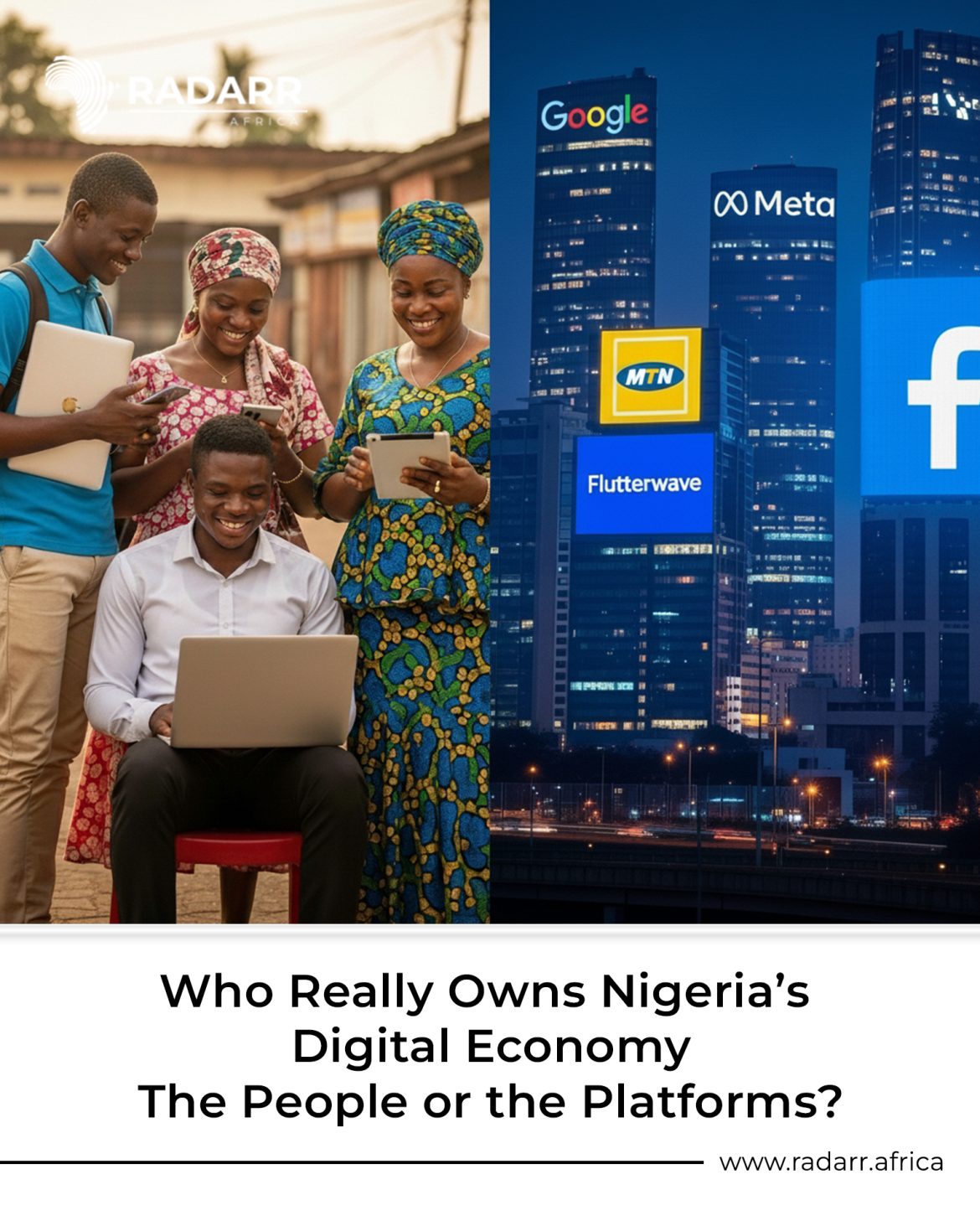The air in Lagos is thick with the buzz of digital activity. From the mama put accepting transfers via a fintech QR code to the dispatch rider navigating traffic with a ride-hailing app, Nigeria’s economy is undeniably digital. Trillions of Naira flow through this infrastructure every year, yet when you ask the critical question—who really owns Nigeria’s digital economy, the people or the platforms—the answer is far from simple. It sits uncomfortably between a celebration of local entrepreneurship and a cautionary tale of outsourced value. Nigerians provide the massive market, the talent, and the daily hustle that powers the ecosystem, while the ultimate beneficiaries often reside far away, holding the equity and setting the terms of engagement.
At first glance, the digital revolution belongs to the people. Millions of Nigerians have embraced mobile technology at lightning speed, becoming the lifeblood of fintechs, e-commerce, and content platforms. The small business owner relies on Moniepoint or OPay for seamless transactions. Freelancers earn in dollars through Upwork, while commuters depend on ride-hailing apps like Bolt and Uber. Every transaction, chat, and search generates data—the new oil of the digital economy—and this data is overwhelmingly owned and monetized by the platforms. Nigerians create the network, bear the risk, and fuel the economy, yet the platforms capture the value generated.
Platforms, on the other hand, have consolidated ownership and governance. While the activity is local, control often lies with foreign investors and strategic international acquirers. Paystack’s acquisition by the American company Stripe is a prime example, shifting ultimate decision-making and profits out of the country. Similarly, leading e-commerce and logistics companies in Nigeria are heavily backed by foreign capital. This has given rise to value extraction, where Nigerians pay fees and generate data, but the economic gains are repatriated. The people, in essence, are tenants in a digital house built on their land, paying rent to distant landlords.
The Nigerian government sits between the users and the platforms, represented by bodies like the Central Bank of Nigeria and the National Information Technology Development Agency. Policy frameworks like the National Digital Economy Policy and Strategy aim to diversify the economy, while initiatives like the 3 Million Technical Talent scheme seek to build local capacity. The Nigeria Data Protection Act attempts to give citizens control over their personal data. Yet the fast-moving global nature of platforms makes regulation a constant challenge, leaving gaps between intent and enforcement.
Data sovereignty remains a central concern. Despite the NDPA, most Nigerian-generated data resides on foreign servers, complicating control and protection. Recent CBN interventions, like freezing customer onboarding for major fintechs over compliance issues, exposed how fragile the system is. Millions of users were suddenly locked out, victims of a conflict they did not cause. The incident highlighted the tension between government regulation and platform power, showing that while Nigerians provide the activity, the real control often lies elsewhere.
The solution lies in shifting from merely accessing digital services to owning the means of digital production. Indigenous content and intellectual property must be prioritized, with local entrepreneurs supported to build platforms solving Nigerian problems using Nigerian capital. This requires local investors to take risks on homegrown startups rather than waiting for foreign validation. Similarly, Nigerians must move from being passive data subjects to active data citizens, understanding how their online activity translates into value and demanding fair terms.
Open digital infrastructure is also critical. Collaboration between the government and private sector to create secure digital IDs, universal payment rails, and decentralized data storage will reduce dependence on single platforms. Such infrastructure ensures fair competition, keeps the foundational layers of the economy in public hands, and allows local companies to thrive. Without these measures, the paradox will persist: the people build the digital economy, but the platforms reap the rewards.
The Nigerian digital economy is a roaring bonfire with the people carrying the firewood. The question is, who holds the matchbox, and who collects the ash? Until Nigerians and indigenous capital control the commanding heights of the platform economy, the digital dividend will remain paradoxical. The time for a structural shift in ownership and control is now, before the current model becomes too entrenched to change.
